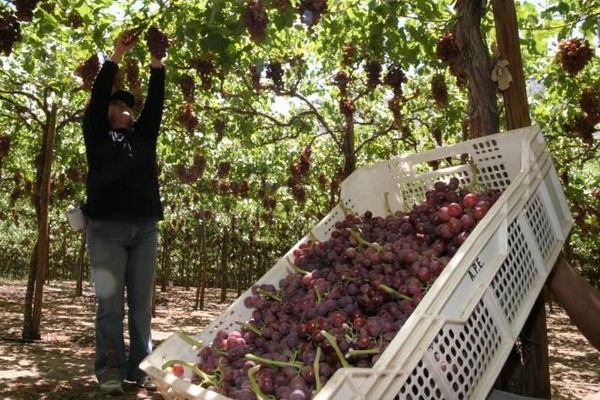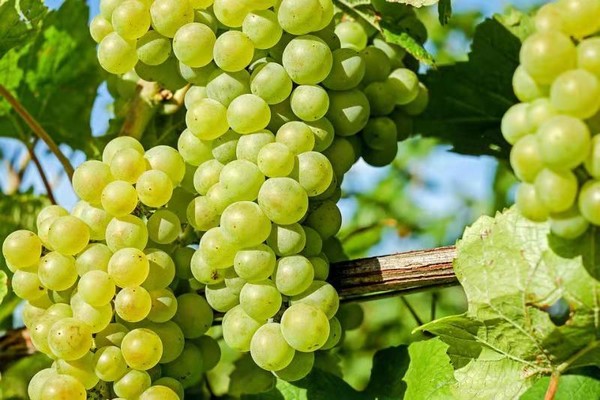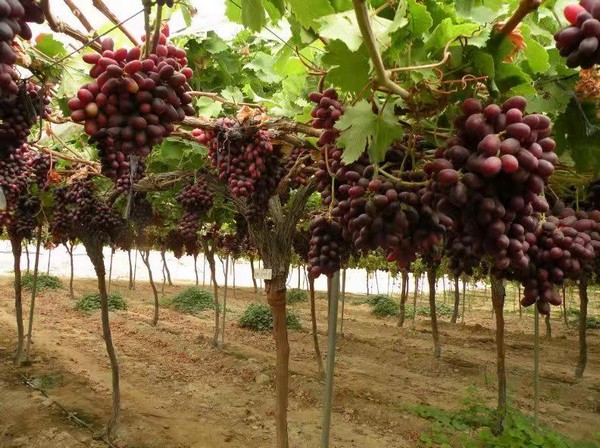Chilean grapes and raisins have gained popularity in more and more countries and their export volumes increase year by year. However in the 2021 season, the Chilean grape sector suffered a poor harvest due to heavy rainfall in February.
BDP Foods is an international business platform founded in 2009. The company represents and supports several grape and raisin exporters in Chile. Diego Vicente is the CEO at BDP Foods. He and his client companies shared their market insights on grapes in the current season.

Industry review of current grape season
Chilean raisins are harvested from January in the north of Chile, and the harvest continues until March in the southern growing area. Then the fruit is dried, stored and is later processed and packed at any moment in accordance with sales.
Hector Arriagada is the Business Development Manager at Andes Quality, one of the main raisins manufacturers in Chile. He reviewed the grape harvest status of the past season. “When it comes to the raisin market, it is important to say that the Chilean grape season 2021 was expected to be a great one in terms of volume and quality. Our last winter and spring offered the best weather for fruit growing and vines were full of fruit waiting to get the right brix level before being harvested. Unexpected heavy rains by February 2021 dampened expectations, and grapes were one of the fruits that were hit the hardest.” Hector said, “As a consequence, flame harvesting had to be brought forward to avoid mold. Other than this, the Thompson variety was mechanically damaged with lots of fruit split so that there was no chance they could be used either by the fresh market or in raisin processing.”
“Facing this challenge, thankfully we have a drying yard located in the foothills of The Andes, where we dry out more than 10.000 metric tons of fresh fruit on a yearly basis. We use the best raw material to secure volume and quality for our clients.” Hector continues, “during the pandemic, our facility in San Felipe area runs full time with a sanitary program. At the moment, logistics is an issue, with ports and shipping lines showing strong signs of congestion, but despite this we have been able to ship to our clients on time.”

Fresh grape and raisin performance in export markets
China is one of the fastest growing markets for Chilean grapes. Last year, China imported 2,375 tons of raisins from Chile, which is 47% less compared with 2019. The COVID pandemic definitely affected the volume of raisins imported. “Despite all the challenges, we increased the raisin sales volume to China,” said Francisco Riesco, the China Regional Manager at BDP Foods. “Despite the effect of the rain, the price of Chilean raisins remained stable this year in China at 2,0 - 2.3USD/kg. The Thompson variety has the most demand in the Chinese market, and this variety was also the one that was affected by the bad weather the most. As a result, there is almost no available product available for the Chinese market.”
Mr. Sergio Ramirez is the ASEAN regional manager at BDP Foods. For him, the last season was not so bad. “According to some importers in Thailand, the consumption did not change too much compared to 2019 and in 2021 we can expect similar volumes. The imported volume of Chilean grapes in 2020 increased by 33% compared to 2019. The main challenges that importers are facing nowadays are the availability and high prices.” Sergio continues. “2021 will be more complicated due to an increase in prices, while at the same time the purchasing power of Thai people and other neighboring countries is considerably decreasing. People are more cautious about their spending and will be more prudent with unnecessary purchases which may include many imported items.”
For Mr. Andres Kuznar, BDP Foods Russia Manager, the market was less promising. “Chilean raisins are losing their market share in Russia. Local people tend to buy from cheaper origins such as Iran, Tajikistan, Uzbekistan, and Turkey instead of Chile. The main opportunity for Chile is to come with Jumbo sizes, both Golden and Flame varieties.” Andres continuous, “Aside from this, the devaluation of the Russian currency has a significant negative impact on imports from Chile. The trend is expected to continue in the coming years and the price of the ruble is expected to continue to devalue against the USD. This has caused importers to switch their suppliers to cheaper countries such as China, former Soviet republics, and Eastern Europe.”

BDP Foods
“Although we live in an increasingly globalized world, each market is unique and incomparable. This makes it very necessary to have an increasingly close relationship with customers and a greater understanding of each market, in order to achieve the translation from global strategy to “local action”, something which can be very difficult to achieve from a distance of thousands of miles.” Diego said.
BDP Foods aims to transfer all the benefits of having an office at the destination, with a highly trained multicultural professional team, to develop the markets where they are. “We represent the best food producers in different origins, who have in common a special focus on quality, good service and a long-term vision. Thanks to this we managed a wide portfolio of different products, which allows us to provide a complete solution to the main importers and supermarkets in the markets where we are, with the consequent benefits for all our export partners.”

For more information:
BDP Foods
Diego Vicente (CEO at BDP Foods)
Dvicente@bdpfoods.com
www.bdpfoods.com
June 14, 2021 at 06:45PM
https://ift.tt/3vtKBLi
“China and South-East Asia have increased demand for Chilean grapes and raisins” - FreshPlaza.com
https://ift.tt/3eO3jWb
Grape

No comments:
Post a Comment